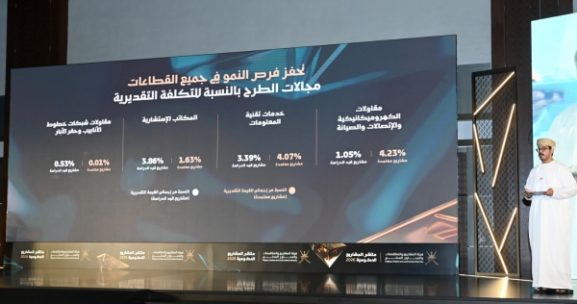Cyber Readiness in Oman Accelerates: What This Means for Investors and Business Owners
MUSCAT, NOV 16 – Oman is entering a pivotal stage in its cybersecurity development, as industry experts emphasize that the nation’s resilience will rely not only on robust frameworks but also on effective and continuous implementation. This critical insight was shared during a panel discussion at the Cysec Oman Forum, where specialists examined the challenges of translating cybersecurity strategies into tangible results.
The panel acknowledged that Oman has established a solid strategic foundation. National cybersecurity frameworks, sector-specific regulations, the Cyber Defence Centre, and data protection policies have all significantly enhanced governance across various sectors. However, experts agreed that the pressing challenge now is execution, with uneven progress in deployment speed, workforce capability, and cross-sector coordination.
Risks differ markedly between industries. Financial institutions, for example, have advanced cybersecurity maturity thanks to the Central Bank of Oman’s stringent frameworks for cybersecurity and business continuity. These have empowered banks and financial entities to meet international standards and respond swiftly to incidents. Other critical sectors, however, have not reached the same level of development. “Multiple layers of governance are in place,” said Ahmed al Lawati, Information Security Specialist at Mala’a, “but execution must improve, requiring stability in personnel, processes, and technologies.”
A major concern highlighted was the global shortage of cybersecurity professionals. Panelists described talent retention in Oman as increasingly difficult, with public and private sectors competing for a limited pool of experts. This shortage causes operational instability, delayed responses, and challenges in maintaining continuous threat surveillance. Mazoon al Rubaiei, Information Security Specialist at Muscat Municipality, explained, “The frameworks are strong, but our ability to execute depends on having trained, available personnel ready to act.”
The panel also addressed the misconception that cybersecurity is a finite project. “Cybersecurity is not a PowerPoint marathon,” stated Hilal al Busaidy, a Data Centre expert. “It is an ongoing, evolving process that requires constant review, testing, and enhancement. Since cyber threats are continuous, our defenses must be as well.”
This insight underscores a vital message for Omani businesses: achieving cyber resilience goes beyond mere compliance. While policies and audits establish structure, true readiness demands a security-centric culture, investment in technology, and empowering employees to act responsibly.
Despite these challenges, the overall outlook was positive. Oman’s regulatory advances, cross-sector collaboration, and strategic clarity position it ahead of many economies in the region. Experts pointed to opportunities to boost readiness through automation, AI-driven monitoring, unified incident reporting, and stronger public-private partnerships.
The speakers concluded that Oman is well-placed to enhance its national cyber defense capabilities, but the next phase will require faster execution, deeper cooperation, and enduring leadership commitment across all sectors. As Shaikha al Mashaykhi, Information Security Specialist at the Oman Chamber of Commerce and Industry, summarized, “Vision has brought us this far, but execution will determine how resilient we truly become.”
Special Analysis by Omanet | Navigate Oman’s Market
Oman’s robust cybersecurity frameworks provide a strong foundation, but the critical challenge now lies in swift, effective execution and talent retention across all sectors. For businesses and investors, this means significant opportunities in cybersecurity services, AI-driven solutions, and workforce development, while those slow to adapt risk increasing vulnerability. Smart entrepreneurs should prioritize continuous innovation, cross-sector collaboration, and building cybersecurity capacity to capitalize on this evolving landscape and support Oman’s growing digital economy.



